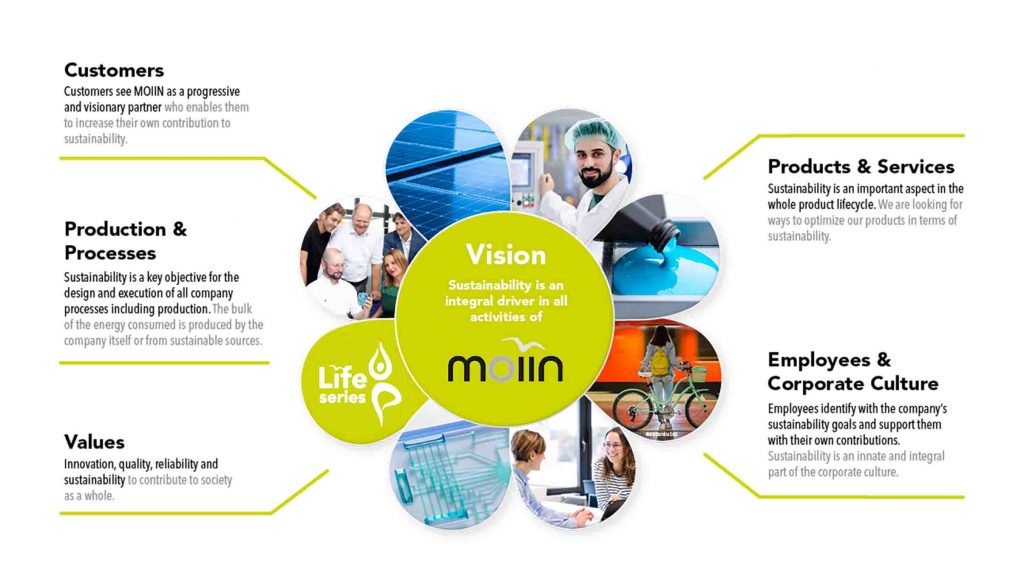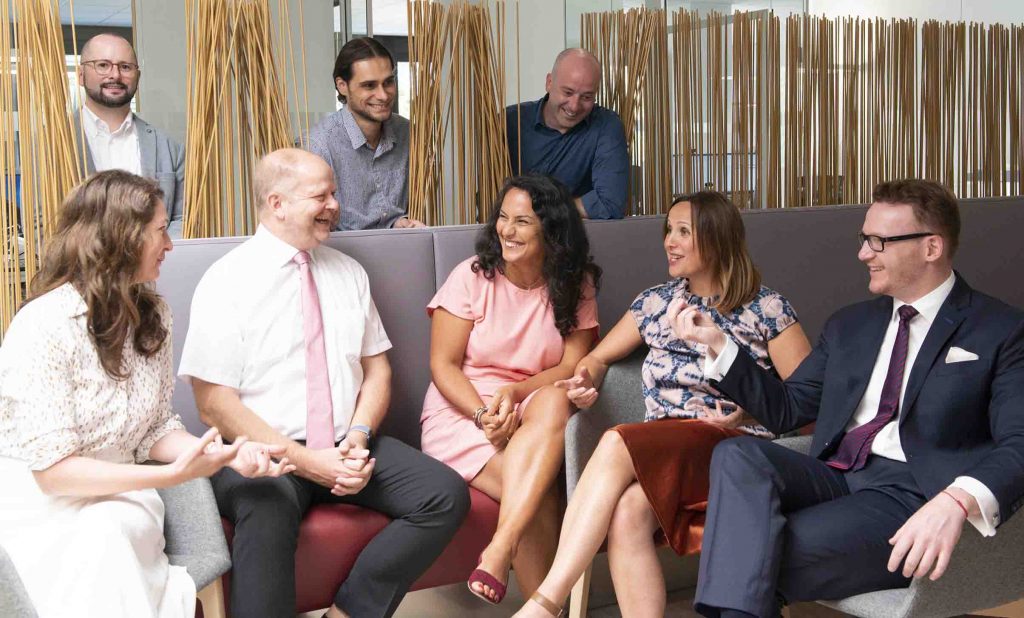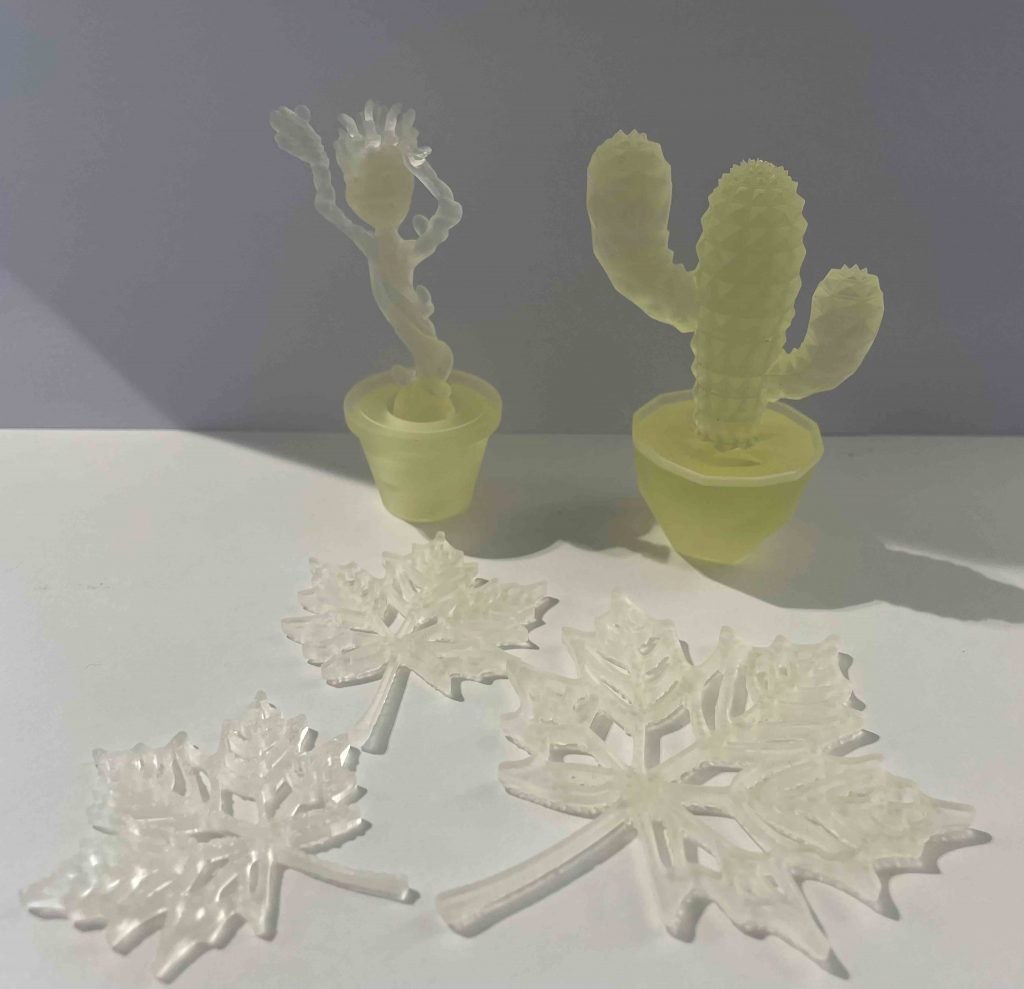MOIIN produces industrial 3D printing solutions and is part of DMG Digital Enterprises SE (DDE). The company was founded in 2020 and forms part of DMG – a family-owned and managed group with its head office in Hamburg, which employs around 500 members of staff (of which approx. 40 employees are at DDE). DMG has been researching, developing and producing innovative materials for the dental industry for 60 years. DDE is focused on the digital business.
As a producer of plastics for 3D printing, MOIIN feels obligated to assume responsibility when it comes to sustainability. The following interview will reveal what exactly this means.
Interview with Anna Babel-Drusenthal, Head of MOIIN.
Easy Engineering: What does sustainability mean to you and what measures are you taking to protect the environment more?
Anna Babel-Drusenthal: As a manufacturer of industrial 3D printing plastics, we at MOIIN are always looking at how we can make our material solutions more sustainable. Being a family-owned and operated company, DMG bears social responsibility to its staff and customers, as well as for the continued existence of the company. This includes sustainable management, which is not only an obligation, but also a business opportunity.
E.E: What strategy is the company pursuing in order to reduce its environmental impact?
A.B.D: DMG has already established various sustainable measures throughout the company, such as rubbish separation, reusable containers in the canteen and environmentally-friendly transport options, like leased bicycles for staff. It is encouraged to use public transport and there is a portal for car pools. E-charging stations have also been installed to make it easier to use electric vehicles. Business flights have greatly declined due to the pandemic and reliable technical alternatives. Options to compensate for unavoidable air travel are currently being reviewed and rail travel is the default for business trips within Germany.

E.E: How is sustainability expressed in your everyday work?
A.B.D: We place a great deal of value on acting sustainably in terms of customer relationships and human resources. It is important to me that not only the MOIIN team but also MOIIN partners and customers are happy. Every single person is seen as an expert in what they do and we treat one another with appreciation, respect and trust. All of this and, of course, the fun factor ultimately contributes to people wanting to work at and with MOIIN for a long time.
The junior staff are particularly important to me. Starting this year, we will be offering MOIIN 3D printing workshops for our DMG trainees and from next year this will be an integral part of the training program at DMG.

E.E: Can you tell us more about the sustainable solutions that you already offer?
A.B.D: We have made sure that our product packaging is as resource-saving as possible right from the start. When it comes to a premium brand such as MOIIN, you normally want to show off the high-quality content with expensive packaging – but we deliberately do without this. Our materials come in a black bottle with a label that has a QR code printed on it. All additional information can be found via the QR code. In this way we not only reduce our packaging waste, but we can always keep our consumers up to date.
Moreover, many of our materials are autoclavable – for instance MOIIN Tech Clear or MOIIN High Temp. One study we recently conducted at Queensland University of Technology confirms that MOIIN resins can be used to 3D print highly complex microfluidic laboratory devices that are autoclavable and therefore reusable. You can read the full study on the MOIIN website.
E.E: And what sustainable innovations are your F&D department currently working on?
A.B.D: Our MOIIN Material Development department is currently developing a plant-based resin for 3D printing. Last year at Formnext we already presented a prototype of this. The material is approximately 78 % soybean oil-based monomers and at this stage of development already has very convincing mechanical properties, e.g. as a material for models.

E.E: Can you tell us about sustainability in production and sales?
A.B.D: We largely produce MOIIN resins “on demand” and only keep a very small amount in stock. Larger amounts are only produced to order and with the corresponding forecast. This means that the amount of leftover goods that would have to be destroyed at the end of their shelf life is kept to a minimum – which greatly reduces our waste. As a result, delivery times for our dealers may be somewhat longer, but the end consumer does not notice this with correspondingly good forecasts.
Sometimes we have goods with a shorter shelf life still in stock. We gift these to educational institutions, for example. This then gives students the opportunity to get to know 3D printing – and we don’t have to throw anything away. It’s a great win-win situation. And a third “win” for the environment.
E.E: What about reusing old equipment and upgrading it with new technologies?
A.B.D: This question does not make me think of a device, but rather the construction of our new warehouse. Instead of completely tearing down the old building and rebuilding, we are using the existing foundation for the new building. This is more complicated and expensive, but it saves many tonnes of concrete, because the old foundation does not need to be disposed of and there is no need for a new foundation to be poured.
E.E: What sustainable energy solutions are you implementing?
A.B.D: Oh, there are a few opportunities: For example, we purchase 100 % green electricity and we will install a photovoltaic system on our new building. We would also like to expand this technology to other buildings in future. We use the heat from exhaust air and server energy and feed it back into the ventilation system using a heat exchanger. In addition, we ensure economical use of ventilation by switching it off completely overnight. The air conditioning system can be individually regulated for each area. Our lighting is energy-efficient, complies with occupational safety requirements and reliably illuminates escape routes.
E.E: What measures for resource conservation and promotion of the circular economy are there at MOIIN?
A.B.D: Compared to subtractive manufacturing, hardly any material is lost in the additive 3D printing process, such as with MOIIN resins. These days certain spare parts can be easily produced with 3D printing, even in small quantities. This makes it more economical to repair things that would otherwise be thrown out and new ones purchased. For example, if small plastic parts that break easily can be printed in 3D and electric devices can be easily and cheaply repaired, 3D printing then offers many ways to reduce waste and conserve resources.
E.E: What future do you see for the topic of sustainability and, in particular, sustainability in 3D printing?
A.B.D: I am convinced that the topic of sustainability is not a fad, but rather an irreversible path towards an existence worth living today and in the future. 3D printing is a promising approach here: 3D-printed objects can be sustainably designed to be taken apart and repaired. Spare parts can easily be manufactured, extending the service life of products. This technology also only produces what is really needed, reducing the storage requirements for structural components and tools, not to mention waste.
ababel-drusenthal@mtcompanies.com
Phone: +49 40 84006-265
Mobile: +49 172 1021 455

